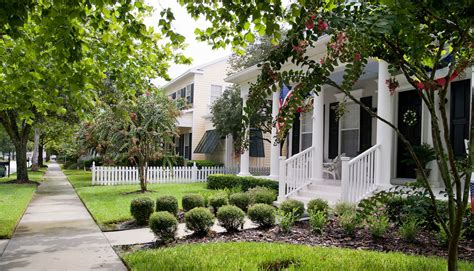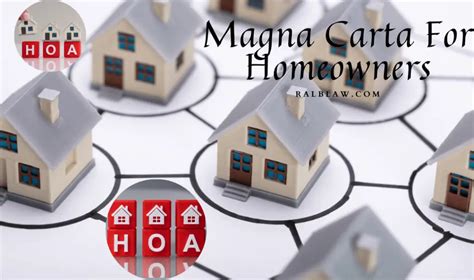
Homeowners in [State Name] are celebrating as a new state law takes effect, significantly curtailing the power of homeowners associations (HOAs) and granting residents greater autonomy over their properties. The law, which went into effect [Date], addresses long-standing concerns about HOA overreach and aims to strike a better balance between community governance and individual property rights.
The legislation specifically targets issues such as excessive fines, arbitrary rule enforcement, and restrictions on property improvements, providing homeowners with clearer guidelines and enhanced legal recourse. “This is a victory for homeowners across the state who have felt powerless against their HOAs,” said [Quote from a proponent of the law from the article]. “This law will ensure fairness, transparency, and respect for individual property rights within HOA communities.”
The new law encompasses several key provisions designed to protect homeowners:
-
Restrictions on Fines: The law places limits on the amount HOAs can fine homeowners for violations of community rules. Fines must be reasonable and proportionate to the infraction, and HOAs are required to provide homeowners with a clear explanation of the violation and an opportunity to appeal. Repeat violations may lead to increased fines but are still subject to reasonableness limitations. The law explicitly prohibits HOAs from imposing fines that are deemed excessive or punitive.
-
Transparency and Due Process: HOAs are now required to operate with greater transparency, providing homeowners with access to board meeting minutes, financial records, and governing documents. The law also mandates a fair and impartial hearing process for homeowners who are accused of violating community rules. Homeowners have the right to present evidence, call witnesses, and be represented by legal counsel during hearings.
-
Regulation of Architectural Controls: The law restricts HOAs’ ability to arbitrarily deny homeowners’ requests for property improvements or modifications. Architectural guidelines must be clear, objective, and consistently applied. HOAs cannot impose unreasonable restrictions on landscaping, exterior paint colors, or other aesthetic changes, provided they comply with local zoning regulations. The law also sets deadlines for HOAs to review and respond to homeowners’ architectural requests. Failure to respond within the specified timeframe results in automatic approval.
-
Dispute Resolution: The law establishes a state-sponsored mediation program to help resolve disputes between homeowners and HOAs. Mediation provides a neutral forum for both parties to negotiate a mutually agreeable resolution, avoiding costly and time-consuming litigation. Participation in mediation is voluntary, but HOAs are required to inform homeowners about the availability of the program. If mediation fails, homeowners retain the right to pursue legal action.
-
Protection Against Foreclosure: The law limits HOAs’ ability to foreclose on homeowners for unpaid fines or assessments. HOAs must pursue other collection methods, such as payment plans or liens, before initiating foreclosure proceedings. The law also provides homeowners with additional protections against predatory lending practices and unfair foreclosure tactics.
Background and Context
The push for HOA reform in [State Name] gained momentum in recent years due to growing concerns about HOA abuses and a lack of accountability. Homeowners reported instances of excessive fines, arbitrary rule enforcement, and bullying tactics by HOA boards. Many felt that their property rights were being violated and that they had no effective recourse.
Several high-profile cases of HOA disputes, which involved issues such as landscaping restrictions, architectural control disagreements, and parking violations, brought the issue to the forefront of public attention. These cases highlighted the need for stronger consumer protections and greater oversight of HOAs.
State legislators responded by introducing a series of bills aimed at reforming HOA laws. The final version of the law, which was signed into law by Governor [Governor’s Name] on [Date], represents a compromise between the interests of homeowners and HOAs. While the law imposes new restrictions on HOAs, it also recognizes the important role they play in maintaining community standards and property values.
Impact on Homeowners and HOAs
The new law is expected to have a significant impact on both homeowners and HOAs in [State Name]. Homeowners will benefit from greater autonomy over their properties, enhanced legal protections, and a more transparent and accountable HOA system. HOAs will need to adapt to the new regulations by revising their governing documents, updating their enforcement procedures, and improving their communication with homeowners.
“This law will require HOAs to operate with greater professionalism and fairness,” said [Quote from a lawyer specializing in HOA law]. “It will also empower homeowners to stand up for their rights and hold HOAs accountable for their actions.”
Some HOA representatives have expressed concerns about the new law, arguing that it will undermine their ability to maintain community standards and enforce rules. They fear that the restrictions on fines and architectural controls will lead to a decline in property values and a deterioration of community aesthetics. However, proponents of the law maintain that it strikes a fair balance between individual property rights and community governance.
“This law is not intended to eliminate HOAs or prevent them from enforcing reasonable rules,” said [Quote from a state legislator]. “It is simply intended to ensure that HOAs operate fairly, transparently, and with respect for the rights of homeowners.”
Challenges and Opportunities
The implementation of the new law is expected to present both challenges and opportunities. One challenge will be educating homeowners and HOA board members about the new regulations. The state will need to provide training and resources to ensure that everyone understands their rights and responsibilities.
Another challenge will be resolving disputes between homeowners and HOAs. The state-sponsored mediation program is expected to help resolve some disputes, but litigation may still be necessary in some cases. Courts will need to interpret the new law and establish precedents for future cases.
Despite these challenges, the new law also presents opportunities to improve the relationship between homeowners and HOAs. By promoting transparency, fairness, and accountability, the law can help build trust and cooperation within communities. HOAs that embrace the new regulations and work collaboratively with homeowners are likely to thrive in the long run.
Expert Analysis
Legal experts and community association managers weigh in on the likely effects of the new legislation.
“[Quote from a legal expert detailing the legal ramifications of the new law, specifically regarding enforcement and potential legal challenges]”, one prominent attorney specializing in HOA law stated. “The devil will be in the details of implementation and judicial interpretation.”
Community association managers also offered practical perspectives. “[Quote from a community association manager on how this new law might affect their daily operations]”, a local community manager noted. “We’re preparing for a significant shift in how we handle enforcement and architectural review. Transparency and clear communication will be paramount.”
Comparison to Other States
The move by [State Name] to curb HOA power follows a trend in other states across the country. Several states have enacted similar laws to protect homeowners from HOA abuses. For example, [mention another state and its similar HOA law].
These laws typically address issues such as excessive fines, arbitrary rule enforcement, and restrictions on property improvements. Some states have also established state agencies to oversee HOAs and investigate complaints from homeowners. The [State Name] law is considered to be one of the most comprehensive HOA reform measures in the country.
Political Implications
The passage of the HOA reform law is a significant political victory for homeowners and consumer advocacy groups. The law was supported by a bipartisan coalition of legislators who recognized the need to protect homeowners’ rights. The law also reflects a growing national movement to reform HOA laws and hold HOAs accountable for their actions.
The law is likely to have a lasting impact on the political landscape in [State Name]. Homeowners who have felt powerless against their HOAs are now more likely to get involved in local politics and advocate for their rights. The law may also inspire other states to enact similar HOA reform measures.
The Future of HOA Governance
The new law in [State Name] marks a turning point in the history of HOA governance. For decades, HOAs have operated with relatively little oversight, and homeowners have often felt powerless to challenge their decisions. The new law will change that by empowering homeowners and holding HOAs accountable.
The future of HOA governance is likely to involve greater transparency, fairness, and collaboration between homeowners and HOAs. HOAs that embrace these principles and work collaboratively with homeowners are likely to thrive in the long run. Those that resist change and continue to operate in a secretive and authoritarian manner are likely to face increasing challenges.
Homeowner Reactions
The response from homeowners has been overwhelmingly positive. Many homeowners who have been struggling with their HOAs for years are now breathing a sigh of relief. They feel that the new law will finally give them a voice and protect their property rights.
“[Quote from a homeowner who has experienced issues with their HOA, expressing relief and optimism about the new law]” said a resident of [City Name], who has been embroiled in a dispute with her HOA over landscaping restrictions.
“This is a game-changer,” said another homeowner. “For too long, HOAs have been able to operate with impunity. This law will finally hold them accountable.”
However, some homeowners remain skeptical, saying it’s a step in the right direction but proper enforcement will be key.
HOA Reactions
HOAs have expressed mixed reactions to the new law. Some HOA representatives have welcomed the new regulations, saying that they will help to create a more professional and transparent HOA system. Others have expressed concerns about the potential impact on their ability to maintain community standards and enforce rules.
“[Quote from an HOA representative expressing concern about the new law]” said a representative of a large HOA in [City Name]. “We’re worried that these new restrictions will make it more difficult for us to maintain property values and keep our community looking its best.”
Long-Term Projections
Experts predict the new law will have a ripple effect throughout the state. Increased mediation, more homeowner involvement in board elections, and a re-evaluation of existing community guidelines are all likely outcomes. Property values could also be affected, though the long-term impact remains uncertain. Some argue that increased homeowner autonomy could attract buyers, while others fear that relaxed enforcement might lead to a decline in community aesthetics.
Conclusion
The implementation of [State Name]’s new HOA law represents a significant shift in the balance of power between homeowners and their associations. While challenges lie ahead in its application and enforcement, the law aims to foster fairer, more transparent community governance and strengthen the rights of property owners across the state. Its success will depend on effective communication, diligent enforcement, and a willingness from both homeowners and HOAs to adapt to the new regulatory landscape.
Frequently Asked Questions (FAQs)
-
What are the main provisions of the new HOA law in [State Name]?
- The law restricts excessive fines, mandates transparency and due process, regulates architectural controls, establishes a state-sponsored mediation program for dispute resolution, and limits HOAs’ ability to foreclose on homeowners for unpaid fines or assessments.
-
How does the new law affect fines imposed by HOAs?
- The law places limits on the amount HOAs can fine homeowners, requiring fines to be reasonable and proportionate to the infraction. It mandates a clear explanation of the violation, an opportunity to appeal, and prohibits excessive or punitive fines.
-
What rights do homeowners have regarding architectural changes under the new law?
- The law restricts HOAs’ ability to arbitrarily deny requests for property improvements or modifications. Architectural guidelines must be clear, objective, and consistently applied. HOAs must also adhere to specified deadlines for reviewing and responding to homeowners’ requests.
-
What dispute resolution options are available to homeowners under the new law?
- The law establishes a state-sponsored mediation program to help resolve disputes between homeowners and HOAs. Participation in mediation is voluntary, but HOAs are required to inform homeowners about the availability of the program.
-
How does the new law protect homeowners from foreclosure by HOAs?
- The law limits HOAs’ ability to foreclose on homeowners for unpaid fines or assessments. HOAs must pursue other collection methods, such as payment plans or liens, before initiating foreclosure proceedings, and homeowners are provided with additional protections against predatory lending practices and unfair foreclosure tactics.
-
Where can I find the full text of the new HOA law?
- The full text of the law is available on the [State Name] Legislature website or through legal resources such as LexisNexis or Westlaw. You can also consult with an attorney specializing in HOA law.
-
Does the law apply to all HOAs in [State Name]?
- Yes, the law applies to all homeowners associations in [State Name], regardless of size or location. However, specific provisions may apply differently based on the HOA’s governing documents and specific circumstances.
-
What if my HOA is already pursuing a foreclosure against me? Does this new law stop it?
- The law may provide you with new defenses or options, but it doesn’t automatically stop a foreclosure already in progress. You should immediately consult with an attorney to determine how the new law affects your specific situation and what steps you can take to protect your rights.
-
What recourse do I have if I believe my HOA is violating the new law?
- You can file a complaint with the state agency responsible for overseeing HOAs (if one exists), pursue mediation through the state-sponsored program, or file a lawsuit in court. Consult with an attorney to determine the best course of action based on your specific circumstances.
-
Will this law affect my HOA fees?
- The law itself doesn’t directly affect HOA fees, but the changes in enforcement procedures and dispute resolution may lead to adjustments in budget allocations. For instance, HOAs might need to allocate more resources to mediation or legal compliance.
-
Who should I contact if I need help understanding my rights under this law?
- You can contact an attorney specializing in HOA law, a consumer protection agency, or a homeowner advocacy group for assistance in understanding your rights and navigating the new law.
-
What constitutes a “reasonable” fine under the new law?
- The law doesn’t provide a specific dollar amount for what constitutes a “reasonable” fine, but it generally means that the fine must be proportionate to the violation and consistent with fines imposed for similar violations. The specifics will depend on the nature of the violation and the community’s governing documents. It also prohibits HOAs from applying daily fines that accumulate to unreasonable amounts.
-
Can an HOA still dictate what color I paint my house under the new law?
- The HOA can still have architectural guidelines, including paint color restrictions, but those guidelines must be clear, objective, and consistently applied. If your HOA’s restrictions are overly broad or subjective, they might be challenged under the new law. An HOA cannot prohibit you from painting your home a certain color simply because they do not like it.
-
How does the mediation process work under this new law?
- The state-sponsored mediation program provides a neutral third party to help homeowners and HOAs resolve disputes. Both parties voluntarily agree to participate. The mediator facilitates communication and helps them explore potential solutions. If a resolution is reached, it can be formalized in a legally binding agreement.
-
Does this law require HOAs to solicit bids for maintenance contracts?
- This is not explicitly mentioned in the source article but some HOA reform laws do address the need for competitive bidding in certain situations to promote fiscal responsibility. The new law may or may not include provisions related to this.
-
How soon do HOAs have to comply with the new regulations?
- The law went into effect on [Date], meaning HOAs are expected to comply immediately. However, some HOAs may need time to update their governing documents and procedures to fully comply with all aspects of the new law.
-
Does this new law prohibit HOAs from restricting short-term rentals (e.g., Airbnb)?
- The source article does not explicitly mention regulation of short-term rentals. Some HOA reform legislation does address this issue, either allowing or further restricting such rentals. The specific provisions of the new law in [State Name] would need to be reviewed to determine its stance on short-term rentals.
-
What are the requirements for HOA board member elections under the new law?
- The source article does not specify any new requirements. Standard HOA elections often require notice to homeowners, open nominations, and secret ballots, but the new law may introduce further stipulations regarding eligibility, transparency, or the use of electronic voting.
-
Can an HOA prevent me from putting up a fence under the new law?
- While the new law regulates architectural controls, it doesn’t guarantee the right to erect a fence. HOAs can still have reasonable rules regarding fence height, materials, and location. However, if the HOA arbitrarily denies a fence request that complies with objective standards, the homeowner might have grounds to appeal under the new law.
-
What role does the state government play in overseeing HOAs under this new law?
- The new law emphasizes state-sponsored mediation, which directly involves the state in resolving disputes. Depending on the specific details of the law, it may also create a state agency or designate an existing agency to oversee HOAs, investigate complaints, and provide guidance on compliance. The extent of state oversight will vary.









